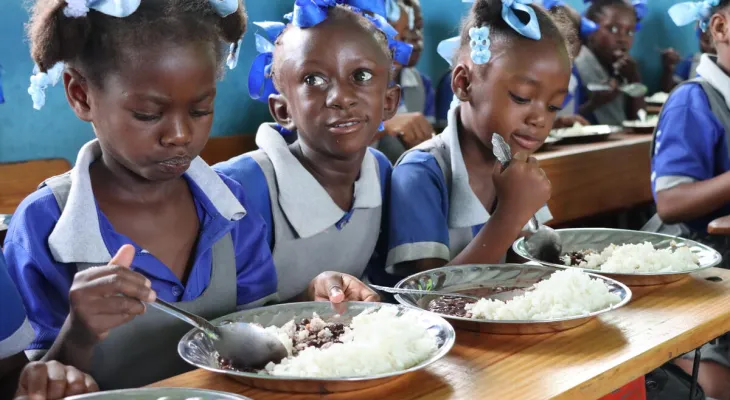
School Meal Programmes Now Reach 466 Million Children Worldwide
A new global report has revealed one of the most remarkable advances in child welfare and education in recent years: nearly 80 million more children are now receiving daily school meals compared to 2020. This surge brings the total number of children supported by government-led school feeding programmes to at least 466 million.
The progress is especially visible in low-income countries, where the number of children benefiting has risen by 60 percent in just two years. Africa stands out, with 20 million more children fed through national initiatives in countries such as Kenya, Madagascar, Ethiopia, and Rwanda.
What makes this achievement significant is that governments are taking the lead. School meal programmes are no longer just about providing food — they are transforming communities. They safeguard children’s health, boost school attendance, support local farmers, create jobs, and promote sustainable diets.
Global investment in school feeding has more than doubled in four years, rising from US$43 billion in 2020 to US$84 billion in 2024. Strikingly, 99 percent of this funding now comes from national budgets rather than international donors, a sign of growing national ownership. Yet, in the poorest countries, sustaining these programmes remains difficult due to limited resources.
Much of the momentum comes from the School Meals Coalition — a partnership of over 100 governments and numerous organizations — which has helped expand programmes and establish formal school meal policies in more than 100 countries.
The report also highlights new findings: school meals not only encourage enrollment and keep children in school, but they also directly improve learning outcomes. Gains in literacy and mathematics are being recorded, sometimes exceeding the impact of traditional education interventions.
Beyond classrooms, the ripple effects are immense:
School meals form the world’s largest social safety net, protecting children during conflicts, pandemics, and climate shocks.
For every US$1 invested, they generate up to US$35 in economic returns across health, education, agriculture, and social protection.
Feeding hundreds of millions of children creates over 7 million cooking jobs worldwide and strengthens local food systems.
Girls and women benefit disproportionately — girls achieve better health and education, while women gain employment as cooks, suppliers, and community workers.
The momentum will be under review later this month at the Global School Meals Coalition Summit in Brazil, where leaders are expected to push for fresh commitments.
With 466 million children already benefiting, advocates believe the goal of reaching every child with a nutritious school meal by 2030 is ambitious — but within reach.




















